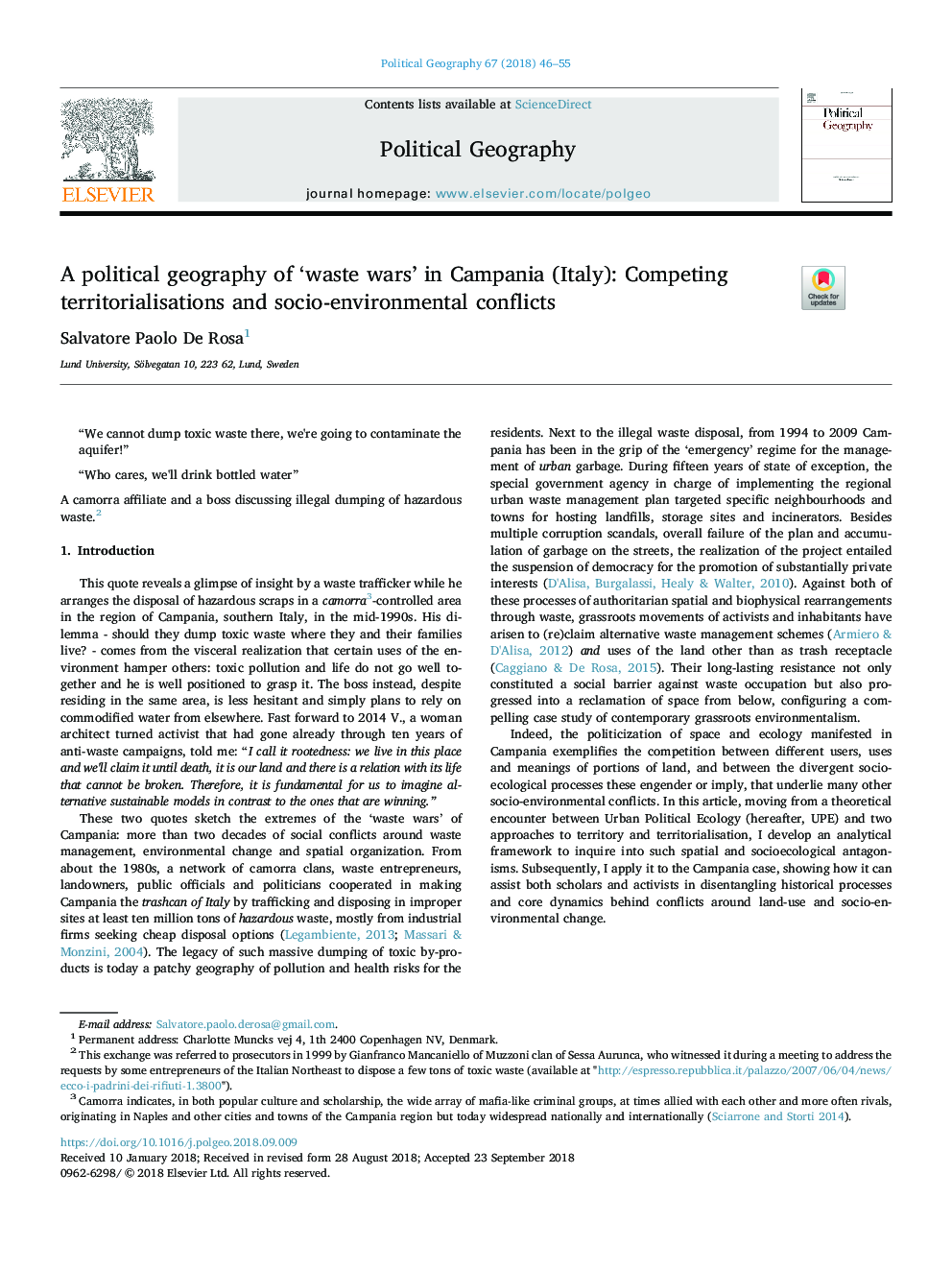| Article ID | Journal | Published Year | Pages | File Type |
|---|---|---|---|---|
| 11027520 | Political Geography | 2018 | 10 Pages |
Abstract
In this article, I propose a novel analytical framework to inquire into the spatial and socioecological antagonisms of socio-environmental conflicts based on the integration of Urban Political Ecology (UPE) with two approaches to territorialisation. While UPE's authors customarily deploy territorialisation, the field lacks engagement with recent theorizations of territorial dynamics of environmental projects and grassroots mobilizations. To address this gap, I turn to conceptualizations of territories as strategic phenomena and political projects of control, on the one hand, and as relational entities and lived realities, on the other. On this basis, I develop the framework of competing territorialisations and apply it to the 'waste wars' of Campania. By focusing on the spatial practices and the imaginaries of the government agency, the organized crime and the grassroots movements, I provide a political geography of Campania that unveils the spatial and socioecological relations through which waste metabolisms have been organized and contested. This perspective shows how extraction of rents and profits from waste hinged on the production of spaces of management and disposal that stem from previous territorialisations, depend on unequal power relations and shape future socioecological configurations. Campania's movements resisted waste occupation and self-organized their own territorial project, realising that territorialisation is key to influence broader socioecological dynamics. My contention is that an UPE of competing territorialisations allows reading historically and dialectically the ways in which metabolic flows are spatialized in specific contexts, how and why they give rise to conflicts and what are the drivers of place remaking from below.
Related Topics
Social Sciences and Humanities
Arts and Humanities
History
Authors
Salvatore Paolo De Rosa,
